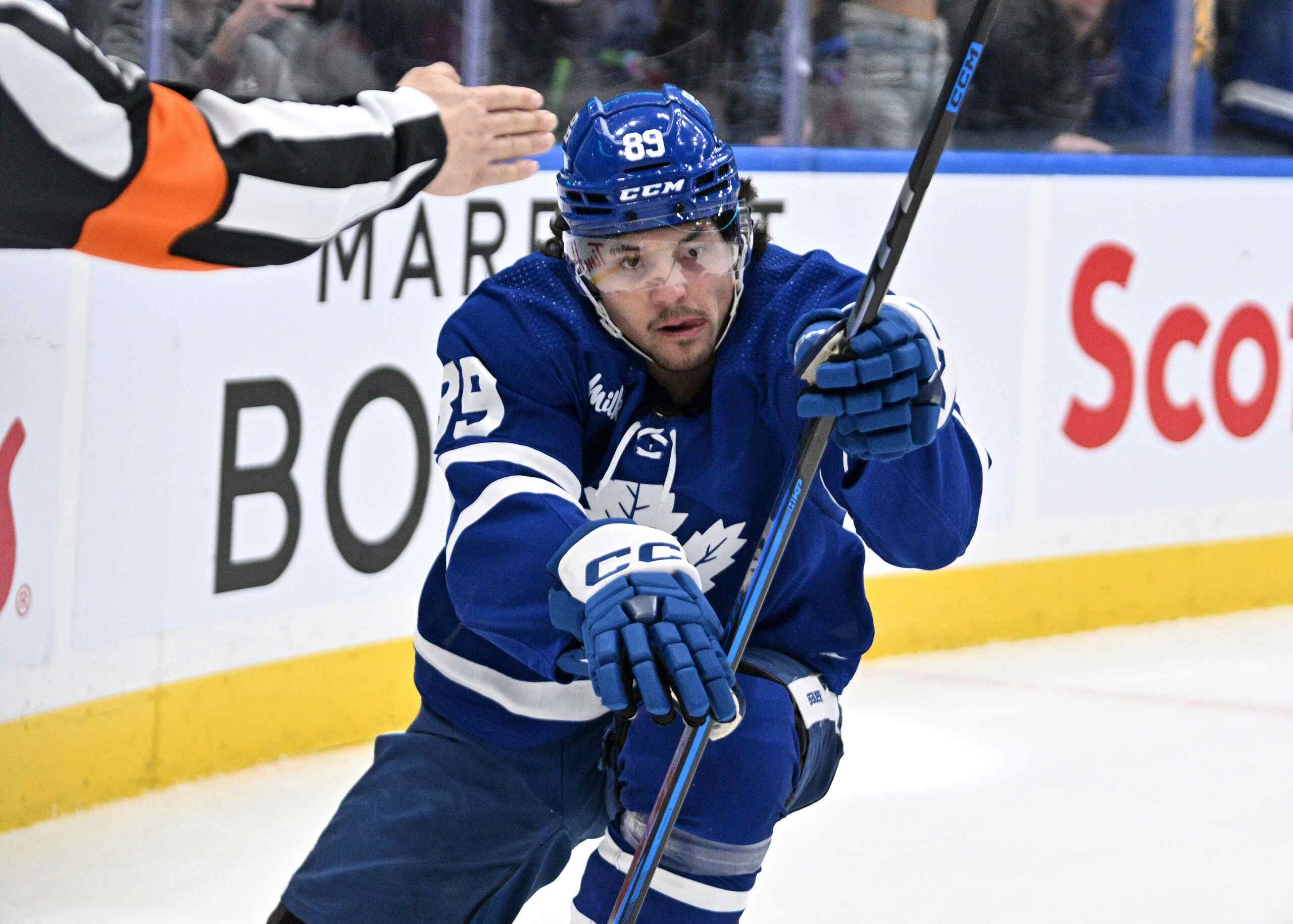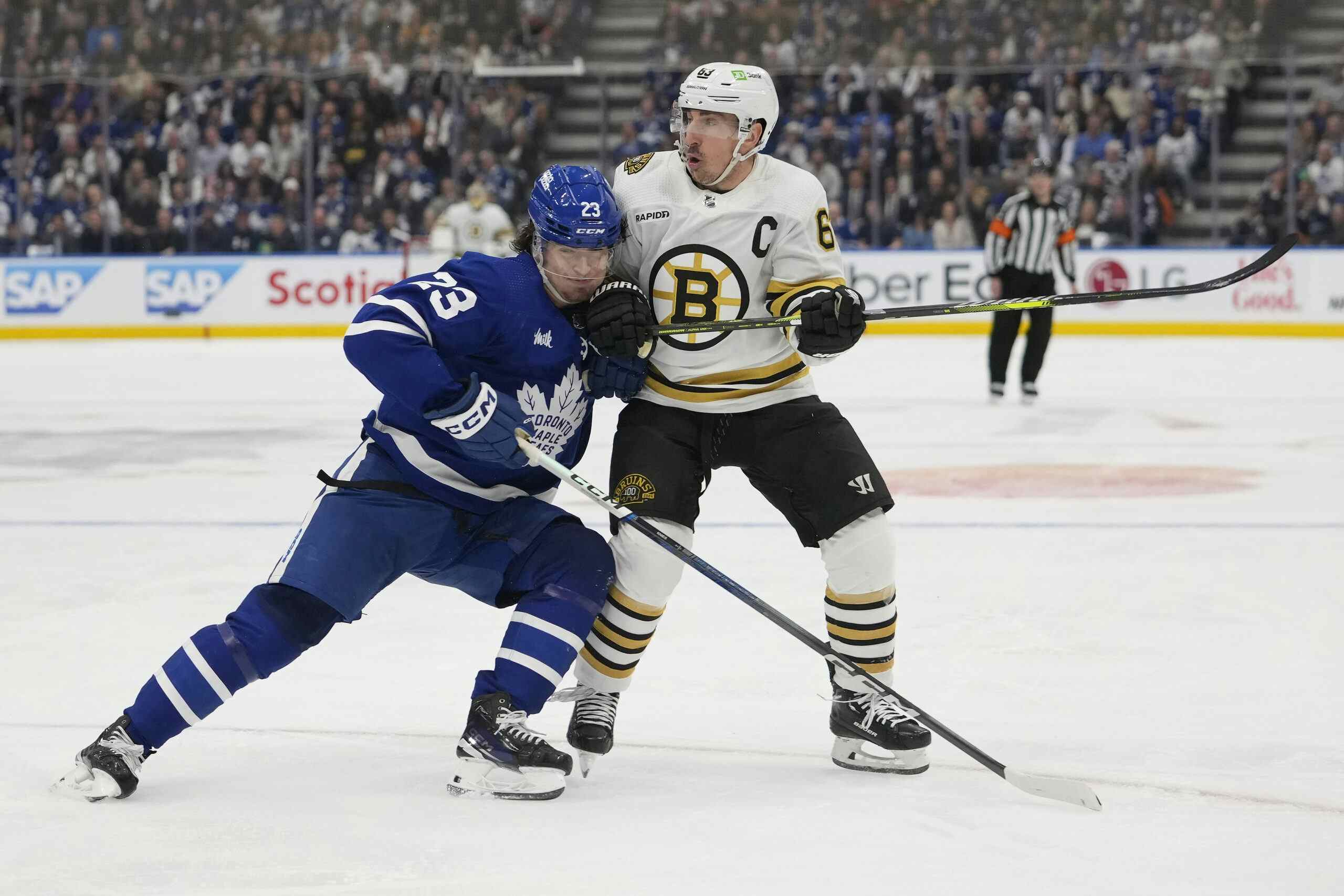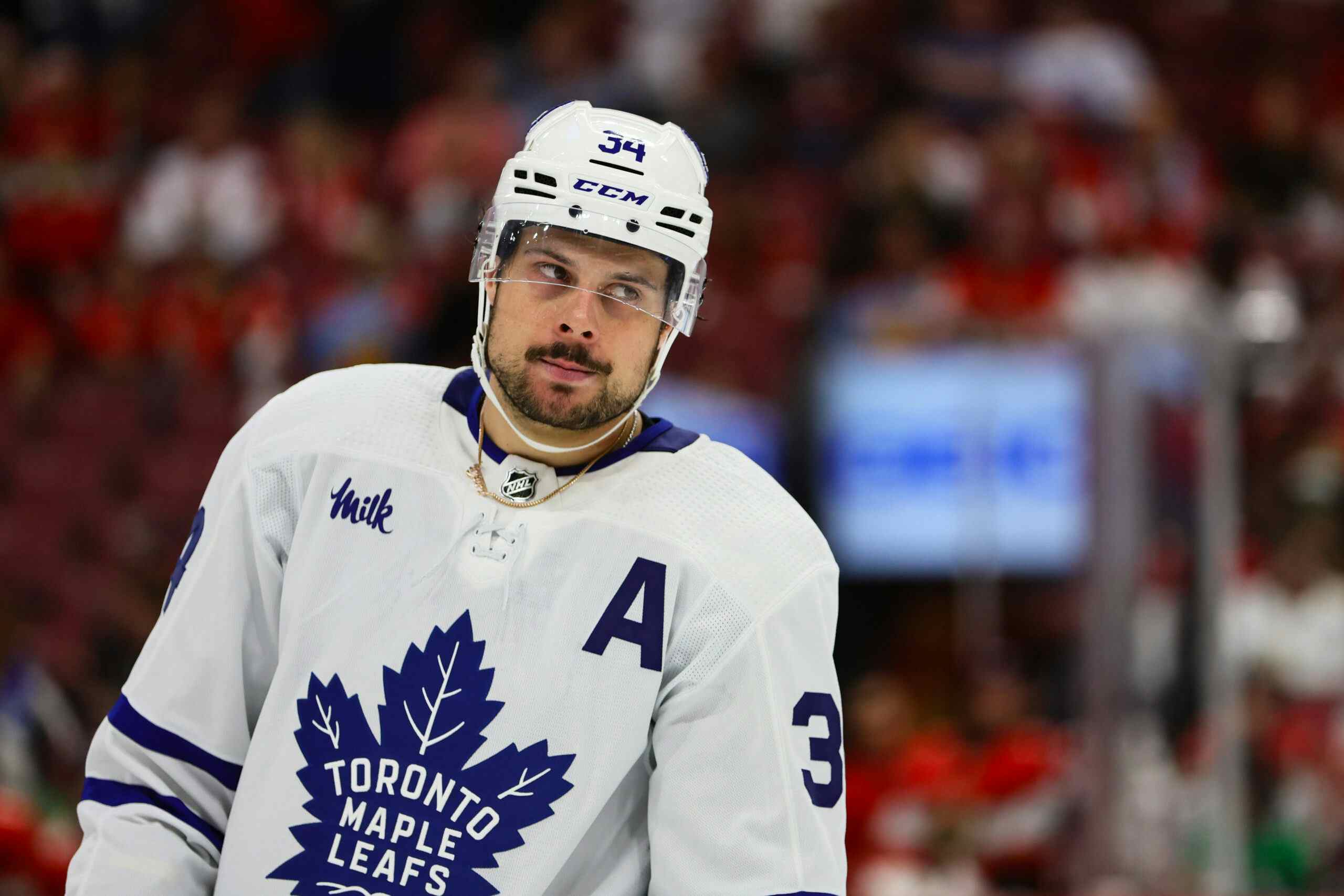Friedman’s Comments on Justin Johnson Contract Bring Up Intriguing Concept
Elliotte Friedman starts every one of his 30 Thoughts articles with a heavy, in-depth lede.
His actual 30 thoughts are usually anywhere from a sentence to a small paragraph, but the heavy lede goes into depth about something thought-provoking. The topic ranges from trades to coaches, salaries to women’s hockey – but this time, the topic was a salary breakdown not at the NHL level, but in the AHL.
The Toronto Marlies have a player under contract this year by the name of Justin Johnson – and his contract, according to Friedman, could be a minor league game changer.
Who is Justin Johnson?
Justin Johnson is a 34 year old minor leaguer from Anchorage, Alaska.
He’s played in a grand total of two NHL games over the course of his entire pro career, which started with an ECHL stint for the Alaska Aces out of his final year of NCAA play for the University of Alaska-Anchorage. In those two games, the 6 foot 1 enforcer recorded no goals, no assists, and seven PIM.
Johnson spent over half of his pro career in the ECHL, bouncing around and appearing with the Idaho Steelheads, Cincinnati Cyclones, and Utah Grizzlies in addition to his time spent with the Aces. He moved to the AHL in 2010, then spent one final year with the Aces during the 2014-2015 season (recording three goals and two assists in 45 games) before inking with the Marlies for the 2015-2016 campaign.
What makes his contract so unique?
At the AHL level, Johnson is making a totally normal AHL salary, and his signing bonus was typical as well. Where the contract gets weird, though, is performance bonuses.
For the purpose of making this easy, I’ll go ahead and paste verbatim what Friedman listed for Johnson’s contract bonuses:

The gist? Johnson benefits not from his own performance, per se, but from the performance of the players around him – many of whom are high-upside prospects expected to not only make the Toronto Maple Leafs roster in the future, but serve as heavy contributors and game changers within it.
How does this change the game?
AHL teams are supposed to serve as more than just minor league teams – much like the AAA in baseball, the AHL is supposed to serve as a developmental league.
There are guys who serve as what baseball fans would consider AAAA players; they’re highly beneficial at the minor league level, but never really hit their stride in the majors. Alexandre Bolduc, Andy Miele, Cory Conacher, and Andrew Campbell all fit this bill pretty well.
Then, there are guys like Johnson; not particularly prolific at the AHL level, but reportedly very good in the room.
Guys like this don’t fight younger players for roster spots, but they do have both experience and respect in the minor leagues. A guy like Johnson has been around for a while, and other veterans both know him and (according to Friedman, who spoke with personnel within the Bridgeport Sound Tigers organization about Johnson) respect him.
AHL teams can have up to only five veterans who have a certain amount of professional experience; you don’t want to pay a guy like Johnson what you’d pay someone like Campbell or Miele, but you do want to have him around.
How do you do that? Team-based performance incentives.
It’s hard to tell exactly how the Marlies want to use Johnson. He’s only seen two games of AHL play this year out of a potential seven, and he received limited ice time in both. He’s clearly not on the roster to contribute offensively.
By giving him incentives based on how the minor leaguers around him play, though, he’s given an incentive to help them grow and develop; while he isn’t considered a player-coach, that’s certainly the type of role a salary like this suggests he could be working towards. His bonuses read like a player-mentor, and that’s exactly what an overflowing roster like the Marlies needs.
Will this translate to the NHL level?
Probably not.
For starters, the NHL CBA currently only allows performance bonuses for rookies and 35+ veterans. That would have to be amended to see contracts get incentives to be ‘good in the room’. Add in that the NHL roster has a strict cap that many teams already struggle with, and you’ve got no reason to add locker room guys for too much more than they already make.
Assuming the league does find a way to change how performance bonuses work, it’s possible that seeing a guy like John Scott or Bobby Robins earn teammate-based incentives could happen down the road. The problem with that, though, is that the most successful NHL teams are oftentimes the ones who are the most cap-strapped — and if performance bonuses are being given out based on that success, teams like the Chicago Blackhawks and New York Rangers (and even the Leafs) would be dealing with an absolute financial nightmare.
It’s still an interesting situation to consider, though – as the leagues continue to evolve and roles continue to shift to keep up with CBAs and other mandates, it will be fun to see how the players adapt to changing regulations moving forward.
Recent articles from Cat Silverman





